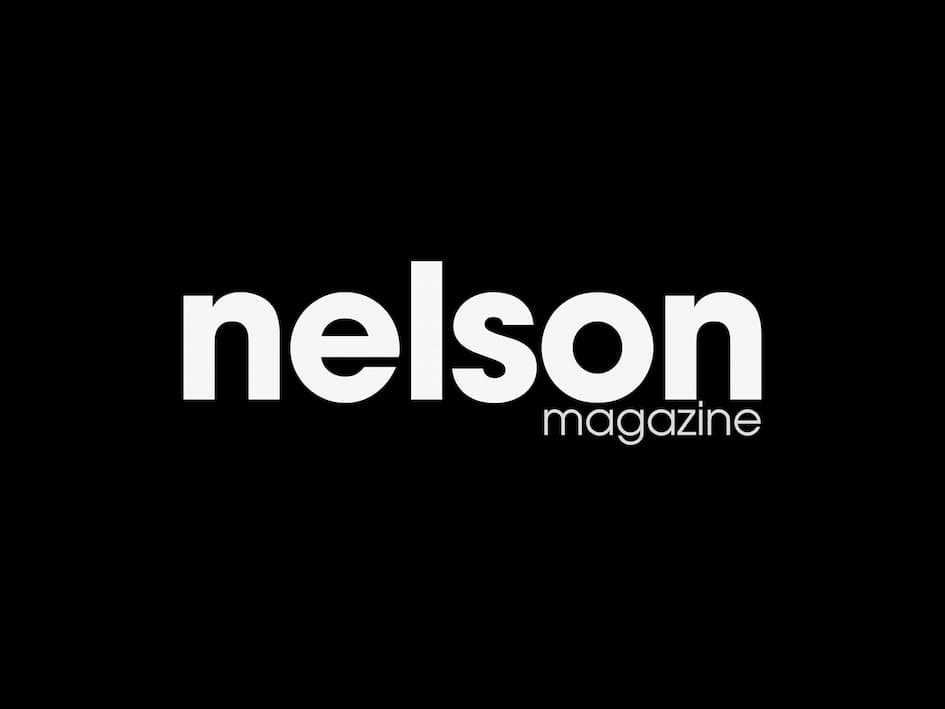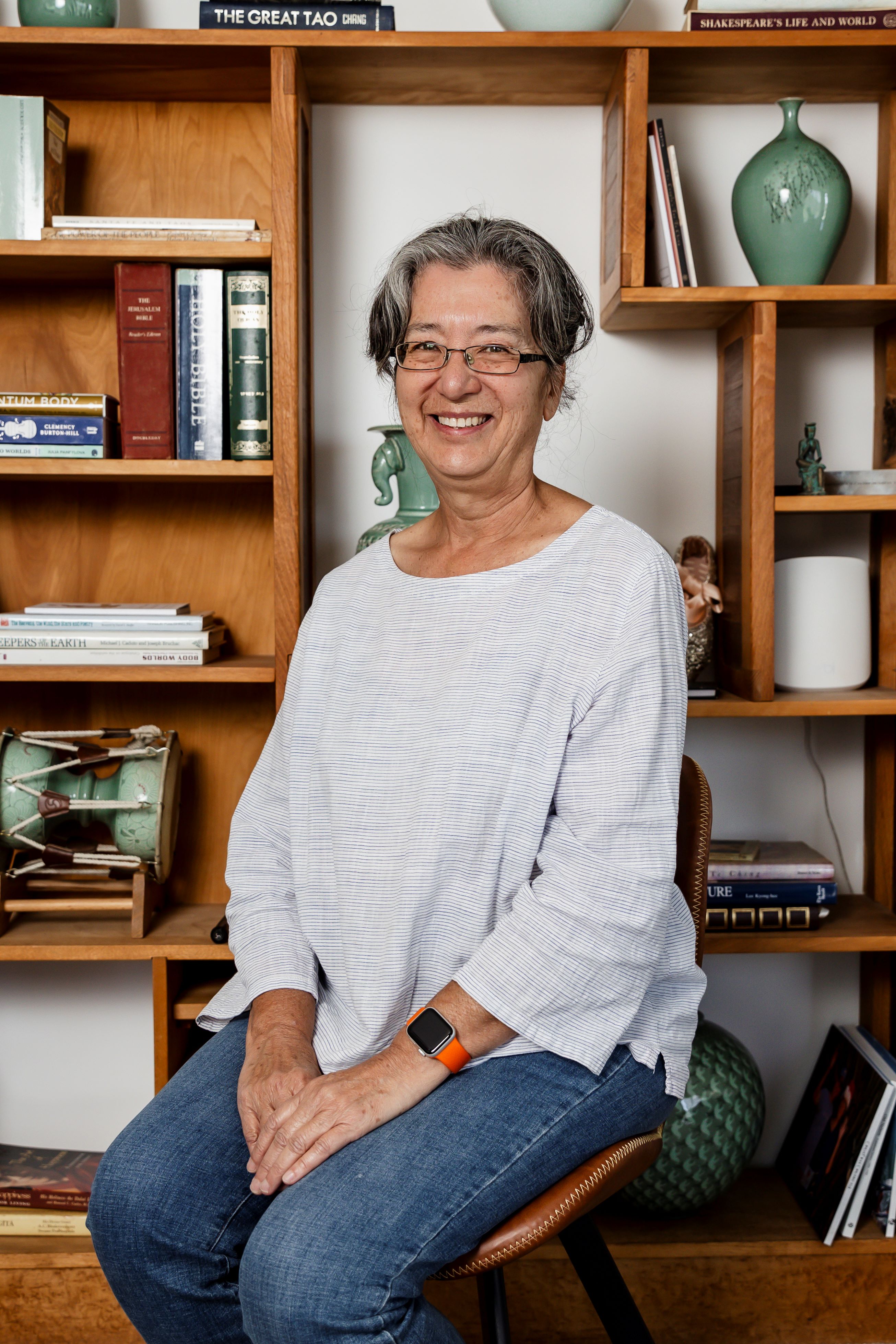Mary's life between two worlds


Mary Bronsteter at her new home in Nelson.
Mary Bronsteter was born in South Korea, but her father’s job in the US military meant she spent her formative years experiencing two very different cultures. She spoke to Britt Coker about newsprint wallpaper and the only large-scale item found in a South Korean kitchen.
We left [South Korea] when I was two years old, and then when I was five and a half, we came back to Korea, and I stayed there until I was 14, and then went back to America. Growing up as a child with my sister, we were a bit different because we had a Polish American father and a Korean mother. So we were half-caste, but we did go to an American military school. What I remember from my childhood was that our father was pretty much gone because he was always in the military. With our Korean mum speaking only Korean at home and only English at school – because at school, they forbid us to speak Korean.

Korea was extremely poor. Growing up, we didn't have meat, but we ate all kinds of fish, snails, and sea slugs. Delicious, raw, all kinds of different root vegetables, lots of pickles, because Korea is very, very cold. It has a long winter season. That's why they make kimchi and lots of other pickles so that they can survive in the wintertime. Because everybody was so poor, the emphasis was always to eat a lot. That was the first thing your mother would always say: Eat it because tomorrow it may not be there. We were all like toothpicks.
We learned what is socially acceptable in a Korean home, and in a Western home. And they're very different. For example, with my Korean cousins, we’d have one huge bowl right in the middle of the table, and we'd all stick our spoons in that bowl and eat with our mouths open and talk at the same time with food on our left cheek, right, and in the middle. Whereas if our dad was there, elbows off the table, no open mouth. You also learn that there's a lot of cultural differences, and so you learn to navigate your way quite quickly.

I lived in Seoul, but my mother is from the far south, Jeonju. So we would visit my grandmother who used to live down there, and she lived in a two-room place with a thatched roof and the wallpapers were made of newspaper, because that's what you did back in the day. Everything was precious, including newspaper.
When we came back [to Korea] I was nearly six years old, my mother, because she could go to the American military supermarket, would buy all kinds of makeup and different things and sell it in the black market. My mother is completely uneducated, but she sure knew how to count, and she taught herself to read English and Korean at a later age. She was very street-savvy. So we were pretty well-to-do. We had a house.
Seoul was always very crowded. Back in those early days, it was not clean. It wasn't like now, where it's super clean, very modern, and high-tech. A lot of Koreans come to New Zealand because it's like the countryside, and they love it.
My father retired in Phoenix, Arizona, because we had a cousin there, and we thought the palm trees were so beautiful. Of course, we had no idea that the weather in Phoenix was either hot or extremely hot. We thought America was great. We each had our own [bed]room. That's unheard of. I mean, everything in Korea is tiny, except the spoons. So of course, we went to Phoenix, not only did we have a front yard, we had a backyard, big kitchen, table, beds, furniture.
In Korea, I barely spoke. I don't know why. I had one friend, and that was about it. But somehow, in my teenage years [in the USA], I just spoke so much. Nobody could shut my mouth.
My sister and I, we’re so old now – I'm 65, she's 68 – and we often talk about how somehow, Korea is stuck in our DNA. We are really Korean, even though we've only lived there for a very short period of time. The way we laugh, the jokes, we watch K drama, we understand it. However, we're also obviously very Western. It's also generational as well, because the modern Koreans are very, very different from my generation.
My husband is German. I met him in South Korea. We lived in the United States, and we tend to be a bit more left wing. Twenty-one years ago, George W. Bush attacked Afghanistan because they were harbouring Osama Bin Laden. We were just absolutely mortified and disgusted with the American international politics ...and the only country that ever said no to America was New Zealand [to nuclear ships visiting].

This was our first choice [Nelson]. Number one, there's Doris at the Saturday market, who sells German bratwurst. She is from near Bavaria, where my husbands from. The sausages were so good. My husband came here first, and he said, “That's it. We're not going anywhere else.” Also, we prefer small towns, but big enough with a good hospital and some culture, like music and art, and we felt Nelson fit all those criteria. Plus, we've got three beautiful national parks surrounding us. So, my God, it's the best, isn't it? I think they [New Zealanders] are so funny. I love their wit.
It took a long time [to meet people] in Nelson, to be honest. Even my Korean friends that lived in Invercargill made instant friends. I thought I would make instant friends, because with children, you tend to.
Now that I'm happily retired, I am involved with Multicultural Nelson Tasman, so we support migrants individually and as a community to thrive in our little neighborhood here. When you can't speak the language and you come here, it's a big struggle. I just feel like a lot of immigrants, they work so hard, but the opportunities here have been absolutely wonderful, and I don't think anyone of us would want to change that. We feel very privileged. I'm part of the Korean white-haired ladies association.

One of my Austrian friends, he came recently from Dubai and was in the [immigration] line of foreigners. There was this one obvious immigrant, and she had her kids in tow, and she couldn't speak English, and you can see everybody's getting frustrated. The customs officer said, “I'm sorry everybody, this is going to take a little bit of time. She is a new immigrant, and this is her first time to New Zealand.” When the officer said that, everybody was clapping their hands and welcoming this complete stranger. I mean, only in New Zealand.
